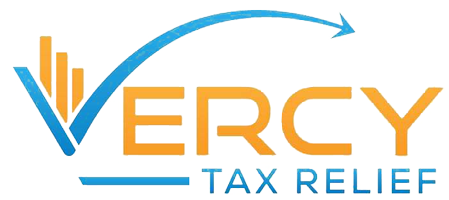Wage Garnishment Info
What You Need to Know
An IRS wage garnishment is part of the IRS levy process and permitted by the Internal Revenue Code. When a taxpayer ignores the IRS notices about taxes owed, the IRS can levy property included wages. The levy notice is sent to the employer and monies are withheld from the taxpayer’s paycheck and sent directly to the IRS. A federal tax levy must leave the taxpayer with some income for living expenses, many state’s tax levies do not.
What is IRS Wage Garnishment?
Wage garnishment is an extreme tactic used to collect taxes. It permits the IRS to seize money and property. The IRS can take your wages, money from your bank or financial accounts, attach your Social Security or Pension, and in some cases seize vehicles, real estate or personal property.
The IRS doesn’t need to go to court to garnish your wages. They issue a levy and contact your employer requiring them to send all but a portion of your wages to the IRS. A wage garnishment stays in place until your debt is paid, or until it is released using the appropriate remedies. Your employer is required to wait one pay period before implementing a garnishment.
Usually, the first communication will be a letter stating how much you owe. The amount owed will include penalties and interest. The letter will advise you of a date to pay the balance, or make other arrangements. If you are unable to pay, or if you fail to respond, the IRS will send additional notices with increasingly hostile threats. If you continue to ignore these notices, you will receive a “Notice of Intent to Levy” the last step before a wage garnishment. If you are assigned to a Revenue Officer they can come to your house or place of work.
How Much Money Does the IRS Take?
The IRS can take most of your money. The exact amount is calculated by determining what portion of your wage is exempt. For example; if you have $500 in exempt income and make $1000 a week, the IRS will take $500. If you make $2000 with $500 exempt, they will take $1500, and so on. This table from the IRS will tell you how much money you will be allowed to keep.
How Can You Stop an IRS Wage Garnishment?
An IRS tax garnishment continues until you pay off your debt, the statute of limitations ends on your tax liability, or the IRS removes your wage garnishment. If you are able to pay your federal tax debt in one large payment amount, this is the fastest and easiest way to remove any tax garnishment. However, most people cannot afford a payment, which is why the garnishment has happened in the first place. You do have other actions to take instead of paying such a large sum at once. You can apply for an Installment Agreement. With this tax relief solution, you pay a monthly amount towards your tax liability. You get to choose the amount, within reason, rather than the amount being forced upon you by the IRS, which is what occurs with a garnishment. With this option, you will have more of your paycheck for your monthly expenses beyond just paying off your tax debt. If you cannot afford to pay your tax debt, you can also apply for an Offer in Compromise, where you negotiate with the IRS as to how much you pay.
How Vercy Tax Relief Helps Remove a Tax Garnishment
topping Wage Garnishment from the IRS can be difficult, but we’re here to help. The following is directly from the IRS website:
If the IRS levies (seizes) your wages, that money is sent to the IRS each pay period until:
You make other arrangements to pay your overdue taxes.
The amount of overdue taxes you owe has been paid.
The levy is released.
Unless the IRS agrees to some resolution, there are only a few options that can force the IRS to stop your garnishment:
Pay your tax debt in full.
The statute of limitations expires.
You file for bankruptcy protection (this may not erase your tax debt).
You submit for an Offer in Compromise, or a payment plan.
You show a “hardship” via financial documentation.
For more information call us at 866-258-0008 and our tax experts can help answer your questions.

